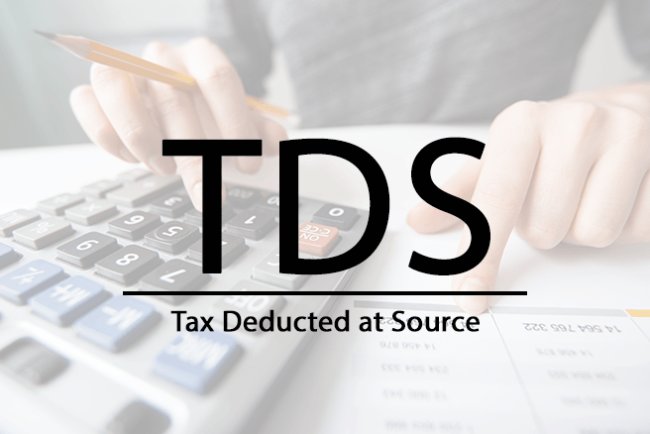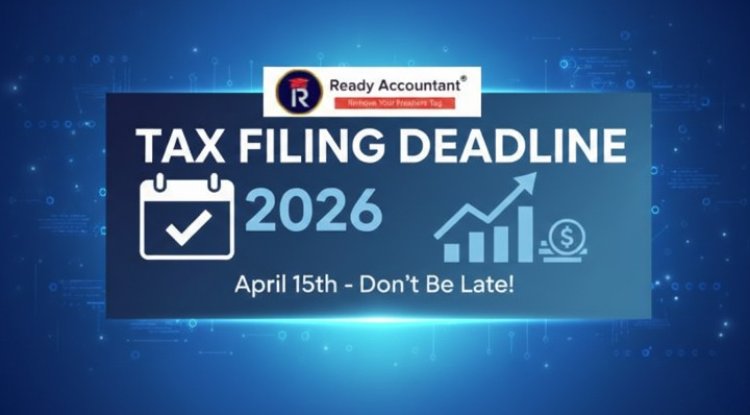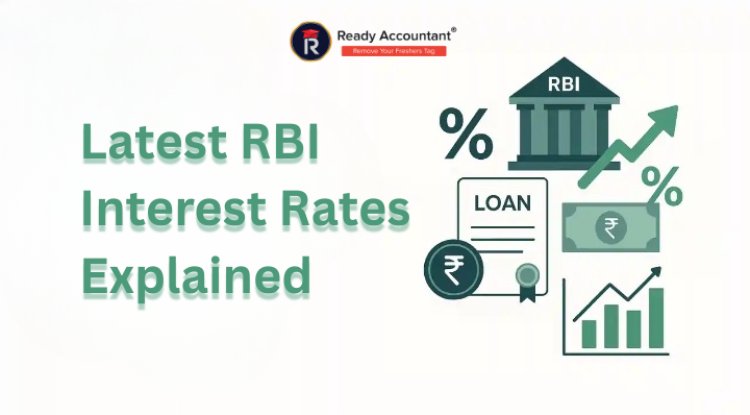Exchange-Traded Funds A Complete Guide
Exchange-Traded Funds (ETFs) are cost-effective, diversified investment vehicles traded like stocks on exchanges. This complete guide explains what ETFs are, how they work, and why they are popular in 2025. Beginners benefit from easy entry, low capital requirements, and reduced risk through diversification. The guide also lists the best ETFs to invest in 2025, both in India and globally, including low-cost and top-performing ETFs. It emphasizes how ETFs can complement accounting and finance education, making them valuable for professionals and students alike. ETFs are a smart, safe, and flexible choice for long-term wealth building.

In today’s fast-paced financial world, Exchange-Traded Funds (ETFs) have emerged as one of the most accessible and efficient investment tools for both beginners and seasoned investors. Whether you're just learning to define accounting, exploring your first accountant course, or already working as a certified Corporate accountant, understanding ETFs can add tremendous value to your investment knowledge. Everything from what is ETFs are, how ETFs work, and top-performing ETFs, to resources for learners such as accounting courses online, taxation courses, and finance and accounting programs.
What is ETF?
An Exchange-Traded Fund (ETF) is a type of investment fund that is traded on stock exchanges, much like individual stocks. It pools money from multiple investors to invest in a diversified portfolio of assets such as stocks, bonds, commodities, or real estate.
The main goal of an ETF is to replicate the performance of a specific index, sector, or asset class. Some common types include:
-
Index ETFs (like Nifty 50 or S&P 500)
-
Bond ETFs
-
Sectoral ETFs (e.g., IT, banking, pharma)
-
Commodity ETFs (e.g., gold ETFs)
How Do ETFs Work?
ETFs work by tracking an underlying benchmark or index. Fund managers create a portfolio that mimics the performance of that index. The ETF is then listed on a stock exchange, where investors can buy or sell units at market price, just like shares of a company.
Here’s a step-by-step overview of how ETFs function:
-
Creation: Fund managers form the ETF and register it on an exchange.
-
Tracking: The ETF holds a basket of assets corresponding to its benchmark.
-
Trading: Investors trade ETF units on stock exchanges.
-
Price Movement: ETF prices fluctuate based on market demand and the value of underlying assets.
Why ETFs Are Popular in 2025
In 2025, ETFs have become one of the fastest-growing investment vehicles globally due to several advantages:
-
Diversification: Gain exposure to a wide range of assets with a single investment.
-
Liquidity: Easily traded on exchanges throughout the day.
-
Cost-Efficiency: Low-cost ETFs usually have lower expense ratios than mutual funds.
-
Transparency: Holdings of most ETFs are publicly disclosed daily.
-
Flexibility: Can be used for both long-term investing and short-term trading.
ETF Investment for Beginners
If you are new to investing, ETFs are an ideal way to begin. Here’s why:
-
You don’t need a large capital amount.
-
Risk is spread across multiple securities.
-
You can start with Index ETFs that track major indices like Nifty 50 or Sensex.
-
Easy to buy and sell through a regular trading account.
How to Start:
-
Open a Demat and trading account with a reliable broker.
-
Research and choose the ETF that suits your financial goals.
-
Start small—test the waters before going big.
-
Monitor your ETF’s performance regularly.
Best ETFs to Invest in 2025
Here are some of the best ETFs to invest in 2025 in India and globally, depending on your risk profile and investment goals:
Top Indian ETFs (2025)
| ETF Name | Type | Why Invest? |
|---|---|---|
| Nippon India Nifty 50 ETF | Index ETF | Tracks the top 50 Indian companies |
| ICICI Prudential Nifty Next 50 ETF | Index ETF | Exposure to large emerging companies |
| SBI ETF Gold | Commodity ETF | Hedge against inflation |
| Mirae Asset Nifty Financial Services ETF | Sectoral ETF | Focus on banking and finance |
| Motilal Oswal Nasdaq 100 ETF | Global ETF | Exposure to top U.S. tech stocks |
Top Global ETFs (2025)
| ETF Name | Exchange | Focus |
|---|---|---|
| SPDR S&P 500 ETF Trust (SPY) | NYSE | U.S. large-cap stocks |
| Vanguard Total Stock Market ETF (VTI) | NASDAQ | Entire U.S. equity market |
| iShares MSCI Emerging Markets ETF (EEM) | NYSE | Emerging economies |
| Invesco QQQ | NASDAQ | Top 100 non-financial NASDAQ stocks |
| iShares Core U.S. Aggregate Bond ETF (AGG) | NYSE | Bond exposure |
Top Performing ETFs in Recent Times
Several top-performing ETFs have consistently delivered robust returns over the past few years. As of early 2025, ETFs linked to U.S. tech indices and India’s infrastructure sectors are among the best performers.
Indian Examples:
-
Nippon India CPSE ETF (focus on public sector enterprises)
-
ICICI Prudential NV20 ETF (invests in companies with strong fundamentals)
Global Examples:
-
ARK Innovation ETF (U.S. disruptive tech)
-
Vanguard Information Technology ETF
These ETFs have capitalized on high-growth sectors and provide an excellent learning case for new investors.
Are ETFs Safe to Invest In?
A common question among investors is: Are ETFs safe to invest in?
The answer depends on:
-
The type of ETF (e.g., government bond ETFs are more stable than sectoral ETFs)
-
Your investment horizon (ETFs are ideal for long-term goals)
-
Market conditions (ETFs reflect market volatility)
However, ETFs are relatively safer than investing in individual stocks due to diversification. Always review the fund’s objective, risk level, and past performance before investing.
Tips for Choosing the Right ETF
-
Check Expense Ratio: Lower is better for long-term investors.
-
Look at Liquidity: High trading volumes ensure better price execution.
-
Review Tracking Error: Smaller tracking error = better benchmark replication.
-
Understand the Sector or Index: Know what assets your ETF holds.
-
Check Fund Size (AUM): Larger funds tend to be more stable and reliable.
Low-Cost ETFs: Best Bets for Cost-Conscious Investors
If minimizing costs is your priority, consider these low-cost ETFs that come with very low management fees:
-
HDFC Nifty 50 ETF
-
UTI Nifty Next 50 ETF
-
Vanguard S&P 500 ETF (VOO) – for global exposure
These funds are great for buy-and-hold strategies, as they keep expense ratios under 0.1%, ensuring that most of your returns go straight to your pocket.
Connecting ETFs to Accounting and Finance Education
If you are pursuing or considering careers like corporate accountant, accountant corporate, or aiming for accounting and finance jobs, learning about ETFs can help you:
-
Interpret financial statements more accurately.
-
Understand investment strategies used by businesses.
-
Make informed decisions in accounting, bookkeeping, accounts and bookkeeping, or business and accounting roles.
Conclusion
Whether you're an accounting assistant online course student, exploring an e-accounting and banking course, or taking a certified accounting course training—understanding ETFs is no longer optional. ETFs are reshaping how individuals and companies invest, and knowledge in this area strengthens your professional profile. Integrate this expertise into your financial accounting class online, accounting coaching near me, or accountant classes online to stand out in today’s competitive financial world.
What's Your Reaction?



















